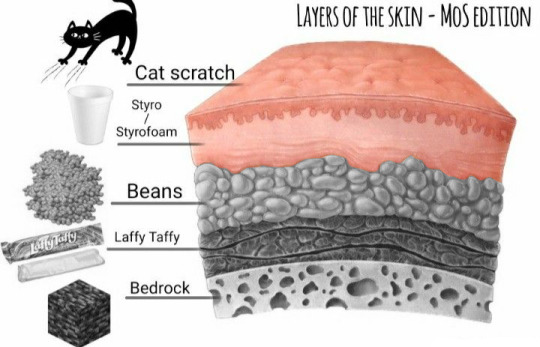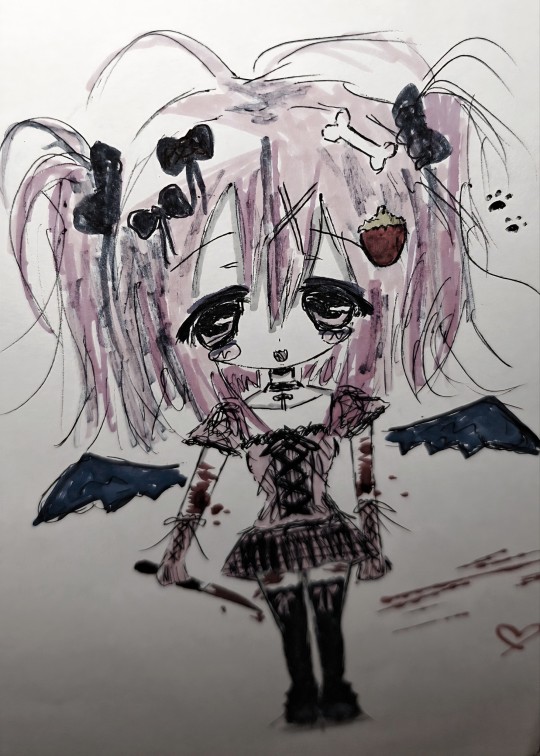Text
so i got banned once again 🫠
so here's some "art" from my old account (TW)
🖤
🖤
🖤









144 notes
·
View notes
Text
deep fake cut
If you don't wanna see it just scroll :)
Extra special effects ✨️
All fake of cause
⭐️
It's so fck pretty hihi
✨️

Last warning
First cvt was crazyyyy
39 notes
·
View notes
Text
AI GENERATED SFXs
Fresh cut special effects


Tonights session. Too much of a coward to do multiple swipes. I think it would be easier to cut deep if I had a scalpel
86 notes
·
View notes
Text
𝒯𝒲 𝒮𝐹𝒳 𝒮𝐻 𝐵𝐸𝒜𝒩𝒮 <𝟥
.
.
.
𝒜𝐿𝐿 𝐹𝒜𝒦𝐸 𝑅𝐿𝐿𝒴 𝒢𝒪𝒪𝒟 𝒮𝐹𝒳 𝒯𝒰𝑀𝐵𝐿𝑅 ;)

𝑔𝑜𝓉 𝒶 𝓃𝑒𝓌 𝒷𝓁𝒶𝒹𝑒 𝓉𝑜𝒹𝒶𝓎 𝒶𝓃𝒹 𝑔𝑜𝓉 𝒷𝟥𝒶𝓃𝓈 𝓌𝒽𝒾𝓁𝑒 𝑜𝓃 𝓅𝑒𝓇𝒸𝓈 ! 𝐼 <𝟥 𝓅𝒾𝓁𝓁𝓈 𝓃 𝒸𝓋𝓉𝓉𝒾𝓃𝑔
36 notes
·
View notes
Text
So… Took this quiz. 😸

Not sure what Histrionic is but i guess im not that. (Idk if that’s positive)
Quiz link :https://www.idrlabs.com/personality-style/test.php
35 notes
·
View notes
Text
Uhhh tw sh









Some of those may have been on my other blog uh idek
31 notes
·
View notes
Text
SOMEONE HELP ME IN MESSAGE HOW I CAN HAVE THE BLADE OF A FUCKING PENCIL SHARPENER NMVHLFKGDKGDKGD
3 notes
·
View notes
Text
i never went this deep around that area on my arm wowwww



47 notes
·
View notes
Text

a small video
tw ai gen sh not real
block dont report

133 notes
·
View notes
Text
tw sh (vid, no sound)
hyperrealistic sfx makeup, ai generated, allat stuff
block don't report ^q^
and yes i failed my "recovery" (tbh i wouldn't call it a recovery either, all i did was bedrotting and sobbing and crying over minor inconveniences while holding my urges to cvt)
30 notes
·
View notes
Text
Ever wondered what this image means? Or just curious about the layers of skin on your body? And to make it worth your while I'll cover how to treat the wounds


First we have the epidermis which is also known as the 'Cat Scratch' layer. The Epidermis is also the outer Barrier which is the outermost layer of the skin. It acts as the body’s first line of defense against bacteria, viruses, UV rays, and dehydration.
Some key features of this layer are: made of stratified squamous epithelium, Avascular, (contains no blood vessels) Constantly regenerates every 28-40 days, Composed of five sublayers (from deepest to outermost): Stratum basale – where new skin cells are produced.
Stratum spinosum – strengthens skin through keratin production.
Stratum granulosum – cells start to die, forming a waterproof barrier.
Stratum lucidum – found only in thick skin (palms, soles).
Stratum corneum – layers of dead keratinized cells.
And finally the important cells of this layer: Keratinocytes (produce keratin)
Melanocytes (produce melanin for pigment)
Langerhans cells (immune response)
Merkel cells (touch sensation)

Next we have The Dermis also known as the Styro/foam layer
Beneath the epidermis lies the dermis, a thicker layer that provides strength and elasticity.
The structure of this layer is divided up into two regions: Papillary layer (upper): loose connective tissue, capillaries, and sensory neurons, and the Reticular layer (lower): dense connective tissue, collagen, and elastin fibers.
The function for these two layers Houses blood vessels, hair follicles, sweat glands, sebaceous glands, and nerve endings. Thermoregulation, sensation, and wound healing happen here.

Now we have the 'Beans' layer which is called The Hypodermis (Subcutaneous Layer) The hypodermis, also known as the subcutaneous tissue, is the innermost layer of the skin, which is made of loose connective tissue and fat cells (adipocytes).
The functions of this layer Insulates the body and maintains core temperature, Cushions internal organs, Stores energy as fat, Connects skin to underlying muscles and bones.
Fun Fact:
The thickness of skin varies depending on the location—it's thickest on the palms and soles (up to 4 mm) and thinnest on the eyelids (around 0.5 mm).

Finally the Laffy Taffy and bedrock layers are simply muscle and bone. Now I'm going to move on to what everyone is waiting for and that is
what happens when each layer is cut and how to treat the wound
Cut to the Epidermis (Superficial Wound)
➤ What Happens:
Only the top layer of skin is damaged. Minimal bleeding or none at all. May sting or look red. Example: light scratch, razor nick.
➤ Healing & Treatment:
The body quickly begins regeneration of skin cells from the stratum basale.
Usually heals in 3–7 days without scarring.
Clean the area, apply antibiotic ointment, and bandage if needed.
Cut to the Dermis (Partial-Thickness Wound)
➤ What Happens: Bleeding occurs due to blood vessels in the dermis. Pain, redness, and inflammation. Possible exposure of nerve endings, causing sensitivity.
Example: deeper knife cuts, second-degree burns.
➤ Healing & Treatment:
May take 1–3 weeks depending on depth.
Wound must be kept clean and moist to prevent infection.
May require stitches, antibiotics, and regular dressing changes.
Skin may scar depending on healing and depth.
Cut to the Hypodermis (Full-Thickness Wound)
➤ What Happens: Deep wound cuts through all skin layers. Exposure of fat tissue; bleeding can be profuse. Risk of infection is higher.
Example: puncture wounds, lacerations, animal bites.
➤ Healing & Treatment:
Professional medical attention required.
Usually needs stitches or even surgical intervention.
May require tetanus shot or oral antibiotics.
Heals slower, and scarring is likely.
Cut into Muscle Tissue
➤ What Happens: Muscle fibers are damaged—can cause weakness, limited mobility, or muscle spasms.Deep bleeding, swelling, bruising.Risk of nerve or tendon damage if injury is severe.
➤ Healing & Treatment:
Requires stitches or even surgical repair if muscle is torn.
Long healing period (weeks to months).
May involve physical therapy to regain strength and function.
Pain management with medication.
Injury to the Bone (Open or Compound Fracture)
➤ What Happens: Bone is fractured and exposed through the skin. Extreme pain, bleeding, and high risk of infection. Can damage surrounding nerves, muscles, and vessels.
➤ Healing & Treatment:
Emergency medical care is critical.
Often requires surgery, including:
Bone realignment (reduction)
Metal rods, plates, or screws (internal fixation)
Antibiotics, wound care, and immobilization (cast or brace).
Healing may take 6–12 weeks or longer.
My final notes:
Always seek medical attention for deep wounds, uncontrollable bleeding, or exposed tissue.
Proper wound care prevents infection and supports faster recovery.
Healing varies based on age, health, nutrition, and injury type.
And always remember to take proper care of yourself <3
329 notes
·
View notes
Text


Autopsy after death by peritonitis and sepsis. A prank gone wrong.
138 notes
·
View notes
Text
I NEED MY BLADES NEOW!

Also i made a lil tag called caz ranting if ya care
27 notes
·
View notes







